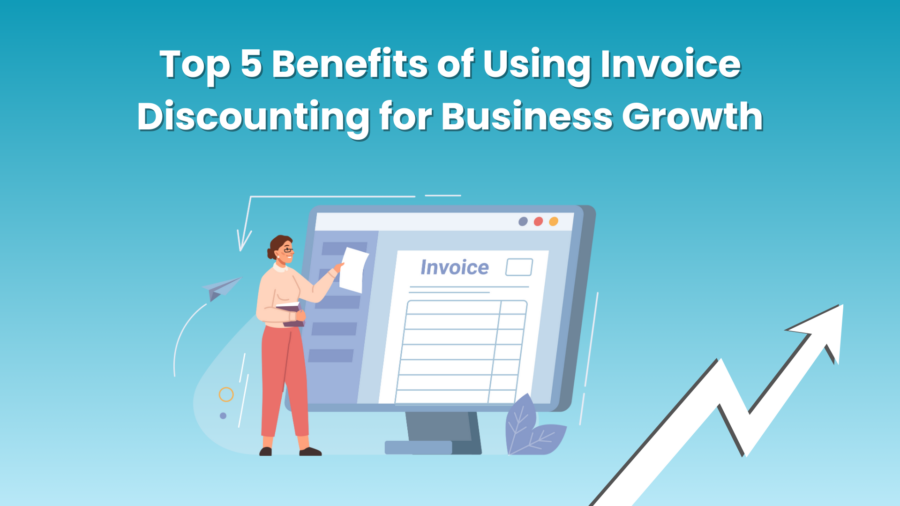Investors often explore options to unlock the liquidity of their investments without selling their assets. Two popular financing tools for such purposes are Loan Against Shares (LAS) and Loan Against Mutual Funds (LAMF). These financial instruments allow borrowers to leverage their investments to secure funds for various needs, such as personal expenses, business expansion, or debt consolidation.
If you’re considering either of these options, understanding the differences between a Loan Against Shares and a Loan Against Mutual Funds is crucial. This blog, brought to you by Anupam Finserv, will provide a detailed comparison to help you make an informed decision.
What is a Loan Against Shares?
A Loan Against Shares is a type of secured loan where you pledge your equity shares as collateral to the lender. The loan amount is determined by the market value of the shares you hold and the lender’s Loan-to-Value (LTV) ratio policy.
Key Features of Loan Against Shares:
- Collateral Requirement: Only equity shares listed on stock exchanges are eligible.
- Loan Amount: Typically, up to 50-70% of the market value of the pledged shares.
- Interest Rates: Generally lower than unsecured loans but slightly higher than loans against mutual funds.
- Ownership Retention: You retain ownership of your shares, allowing you to benefit from price appreciation or dividends.
- Risk: Market volatility can impact the value of pledged shares, potentially leading to a margin call from the lender.
What is a Loan Against Mutual Funds?
A Loan Against Mutual Funds allows investors to pledge their mutual fund units as collateral to secure a loan. It is a convenient way to tap into liquidity while keeping your investments intact.
Key Features of Loan Against Mutual Funds:
- Collateral Requirement: Both equity and debt mutual fund units can be pledged.
- Loan Amount: Up to 50% of the Net Asset Value (NAV) for equity funds and up to 80% for debt funads.
- Interest Rates: Usually lower than a loan against shares, especially for debt mutual funds.
- Ownership Retention: You remain the owner of your mutual fund units, allowing you to benefit from NAV growth.
- Risk: While less volatile than shares, equity mutual funds are still subject to market fluctuations.
Loan Against Shares vs. Loan Against Mutual Funds: A Head-to-Head Comparison
To help you choose the best option, here’s a detailed comparison of Loan Against Shares and Loan Against Mutual Funds based on various factors.
1. Eligibility Criteria
- Loan Against Shares: Requires ownership of equity shares listed on recognized stock exchanges.
- Loan Against Mutual Funds: Accepts both equity and debt mutual fund units.
2. Loan-to-Value (LTV) Ratio
- Loan Against Shares: Typically, up to 50-70% of the share value.
- Loan Against Mutual Funds: Up to 50% for equity funds and 80% for debt funds
3. Market Volatility Impact
- Loan Against Shares: High market volatility can lead to frequent margin calls.
- Loan Against Mutual Funds: Less affected by market fluctuations, especially for debt funds.
4. Interest Rates
- Loan Against Shares: Slightly higher interest rates due to market risk.
- Loan Against Mutual Funds: Lower interest rates, particularly for debt mutual funds.
5. Ease of Processing
- Loan Against Shares: Slightly more complex, as it involves evaluating share eligibility and market volatility.
- Loan Against Mutual Funds: Easier to process, as NAV-based valuation simplifies the collateral assessment.
6. Ownership Benefits
- Loan Against Shares: Dividends and capital appreciation continue.
- Loan Against Mutual Funds: NAV growth and mutual fund benefits remain unaffected.
7. Risk Level
- Loan Against Shares: Higher risk due to market volatility.
- Loan Against Mutual Funds: Lower risk, especially for debt funds.
Why Choose a Loan Against Shares?
A Loan Against Shares is ideal for individuals who:
- Need funds quickly for personal or business purposes. Hold a portfolio of high-performing equity shares.
- Are willing to take on higher risk in exchange for higher loan amounts.
Example Use Case:
Mr. Sharma, a business owner, holds shares of a blue-chip company worth ₹20 lakhs. He secures a Loan Against Shares for ₹10 lakhs (50% LTV) to fund his working capital needs, retaining ownership of his shares.
Why Choose a Loan Against Mutual Funds?
A Loan Against Mutual Funds is suitable for:
- Investors seeking lower-risk funding options.
- Those who want to retain the stability and growth potential of their mutual fund investments.
Borrowers looking for lower interest rates.
Example Use Case:
Ms. Radhika, an IT professional, owns equity and debt mutual funds with a combined NAV of ₹15 lakhs. She pledges her funds to secure a ₹7.5 lakh loan (50% LTV for equity funds and 80% for debt funds) to renovate her home.
Tax Implications
While both loans do not directly impact your taxable income, here are some nuances:
- Loan Against Shares: Interest paid is not tax-deductible unless the loan is used for business purposes.
- Loan Against Mutual Funds: Similarly, the interest is deductible only for business-related loans.
Consult a tax advisor to understand the implications based on your specific use case.
Why Anupam Finserv is Your Best Choice for LAS and LAMF
At Anupam Finserv, we specialize in providing personalized and hassle-free loans to meet your financial needs. Whether you choose a Loan Against Shares or a Loan Against Mutual Funds, we ensure a seamless experience with benefits like:
- Competitive Interest Rates: We offer some of the lowest rates in the market.
- Quick Approvals: Enjoy fast processing and minimal documentation.
- Flexible Repayment Options: Tailor your repayment plan to suit your cash flow.
- Transparency: No hidden charges or surprises.
As a trusted NBFC, Anupam Finserv is committed to helping you leverage your investments for growth.
How to Apply for a Loan Against Shares or Mutual Funds with Anupam Finserv
Follow these simple steps to apply:
- Evaluate Your Needs: Decide the loan amount and purpose.
- Contact Us: Visit our website or nearest branch to begin the application process.
- Submit Documentation: Provide identity proof, address proof, investment details, and other necessary documents.
- Loan Sanctioning: Our team will assess your application and approve the loan quickly.
- Disbursement: Receive funds directly in your bank account.
With Anupam Finserv, accessing liquidity from your investments has never been easier!
Tips for Choosing the Right Loan Option
- Understand Your Risk Tolerance: If you are risk-averse, a Loan Against Mutual Funds may be the better option.
- Analyze Your Investment Portfolio: Consider the type and value of your investments.
- Assess Your Financial Needs: Determine how much you need and for how long.
- Compare Costs: Look at interest rates, processing fees, and other charges.
- Consult an Expert: Our advisors at Anupam Finserv can guide you in choosing the best loan option.
Conclusion
Both Loan Against Shares and Loan Against Mutual Funds offer excellent opportunities to access funds without liquidating your investments. While LAS is suitable for those with a higher risk appetite and significant equity investments, LAMF is ideal for conservative investors looking for stability and lower interest rates.
At Anupam Finserv, we make the borrowing process simple and efficient. Whether you’re planning to expand your business, consolidate debt, or fund personal goals, we provide the perfect financing solutions tailored to your needs.
Ready to leverage your investments? Contact Anupam Finserv today and unlock the power of your portfolio!








